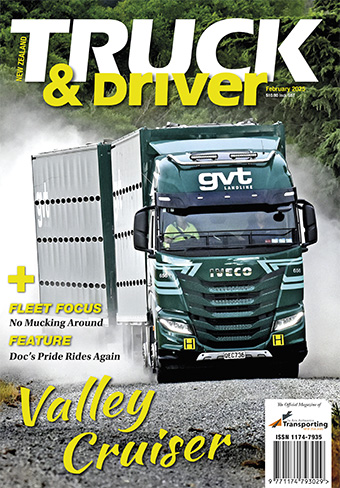Ia Ara Aotearoa Transporting New Zealand News


Road to Zero – a strategy of good intention
The Ministry of Transport recently released a consultation document outlining its approach to a national road safety strategy, Road to Zero.
The document states an ambitious target of a 40% reduction in death and injury between 2020 and 2030.
However, as set out in its submission, RTF considers the strategy to be overly simplistic in its treatment of evidence, detailed analysis of the problem, and the development of proposed solutions.
"Good public policy requires granulated analysis of data that does not exist in this strategy and therefore the public is only being presented with 'headline data' that will inevitably lead to a certain set of conclusions," says RTF's Nick Leggett.
"The likelihood is that these conclusions, while neatly fitting with the current Government's narrative on road safety, will not necessarily address the root causes of accidents."
...The Ministry of Transport recently released a consultation document outlining its approach to a national road safety strategy, Road to Zero.
The document states an ambitious target of a 40% reduction in death and injury between 2020 and 2030.
However, as set out in its submission, RTF considers the strategy to be overly simplistic in its treatment of evidence, detailed analysis of the problem, and the development of proposed solutions.
"Good public policy requires granulated analysis of data that does not exist in this strategy and therefore the public is only being presented with 'headline data' that will inevitably lead to a certain set of conclusions," says RTF's Nick Leggett.
"The likelihood is that these conclusions, while neatly fitting with the current Government's narrative on road safety, will not necessarily address the root causes of accidents."
Firstly, says Leggett, it's critical that we address our inadequate roads: "Median barriers and acoustic edge treatments do not make up for fundamentally dangerous roads or poor road surfacing. These issues can only properly be remedied through investment in new, modern roads.
"Old roads don't have the performance reliability, inbuilt safety design characteristics, or the structural integrity required for a modern, safe transport system.
"Our concern is that inadequate road repairs and retro-fitting of median barriers to unsafe highways will be as much as we can expect in what has become an infrastructure-building vacuum under this Government," says Leggett.
"Like the majority of New Zealanders, RTF is extremely frustrated at the inaction over transport infrastructure. The Government has significantly hiked RUCs and petrol excise….but what have motorists got to show for it?"
On the issue of a possible blanket speed reduction, dropping the speed limit from 100km/h to 90km/h will remove the speed differential between light and heavy vehicles….which provides a limited speed window for light vehicles to pass heavy vehicles within the speed limit. RTF does not see a reduction in the heavy vehicle speed limit to 80km/h as the answer either.
Says Leggett: "With the reduction of speed limits there's always a disconnect between what people say they want and what they're actually prepared to accept. Inevitably, policies that impede traffic flow and impact travel times for no measurable benefit are the ones that will generate the most opposition."
RTF does not believe Road to Zero gives adequate attention to behavioural change and driver education.
"The fact is there is not enough information and analysis on how we can provide the right environment for NZers to become better and more responsible drivers. The waters are also being muddied by the Government's desire to hold a referendum on the legalisation of recreational cannabis and the unknown impact such a major social change may have on road safety," Leggett adds.
"RTF wholeheartedly supports the Government's investigation into the practicalities of roadside drug testing and we hope this can lead to less drivers under the influence of drugs in future."
Another focus area of Road to Zero aimed squarely at the road transport industry is the section on work-related road safety: The strategy proposes improving the data and knowledge around the WorkSafe provisions and the legislation that applies to transport businesses, as well as seeking to encourage best practice safety standards in the supply chain.
The latter aspect is encouraging, says Leggett, "but the focus seems to be on the commercial transport operator and largely ignores the fact that customers dictate the work-day programme.
"RTF is concerned that what is suggested fails to recognise how the supply chain operates. I do not want to see the industry held responsible for the lack of accountability in other parts of the supply chain that are beyond an operator's scope of influence," says Leggett.
"In our view, without significant investment in the fundamentals of our roading system and a concerted effort to change community attitudes to road safety, substance-impaired driving and the dangers of distraction, we're likely to see little real change. It would be a shame if all the drum-beating achieves is little more than a rebranding exercise and a beat-up on the road transport industry."
The Government's final road safety strategy and its first plan of actions, will be released later in the year.




 + EQUIPMENT GUIDE - FREE
+ EQUIPMENT GUIDE - FREE
